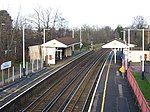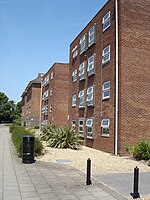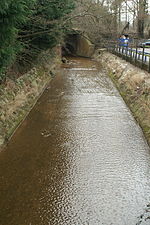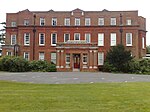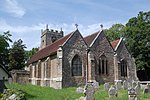Ford Southampton plant
British shadow factoriesBuildings and structures in SouthamptonEngvarB from September 2013Ford of Europe factoriesFormer motor vehicle assembly plants ... and 2 more
Manufacturing plants in EnglandMotor vehicle assembly plants in the United Kingdom

The Ford Southampton plant was a motor vehicle assembly plant, located in Swaythling on the north eastern outskirts of Southampton, England. It was the western European centre for production of the Ford Transit van. The last vehicle was produced on 26 July 2013, ending Ford's vehicle assembly operations in the UK.
Excerpt from the Wikipedia article Ford Southampton plant (License: CC BY-SA 3.0, Authors, Images).Ford Southampton plant
Walnut Avenue, Southampton Mansbridge
Geographical coordinates (GPS) Address Nearby Places Show on map
Geographical coordinates (GPS)
| Latitude | Longitude |
|---|---|
| N 50.943611111111 ° | E -1.3683333333333 ° |
Address
Elis
Walnut Avenue
SO18 2HR Southampton, Mansbridge
England, United Kingdom
Open on Google Maps


